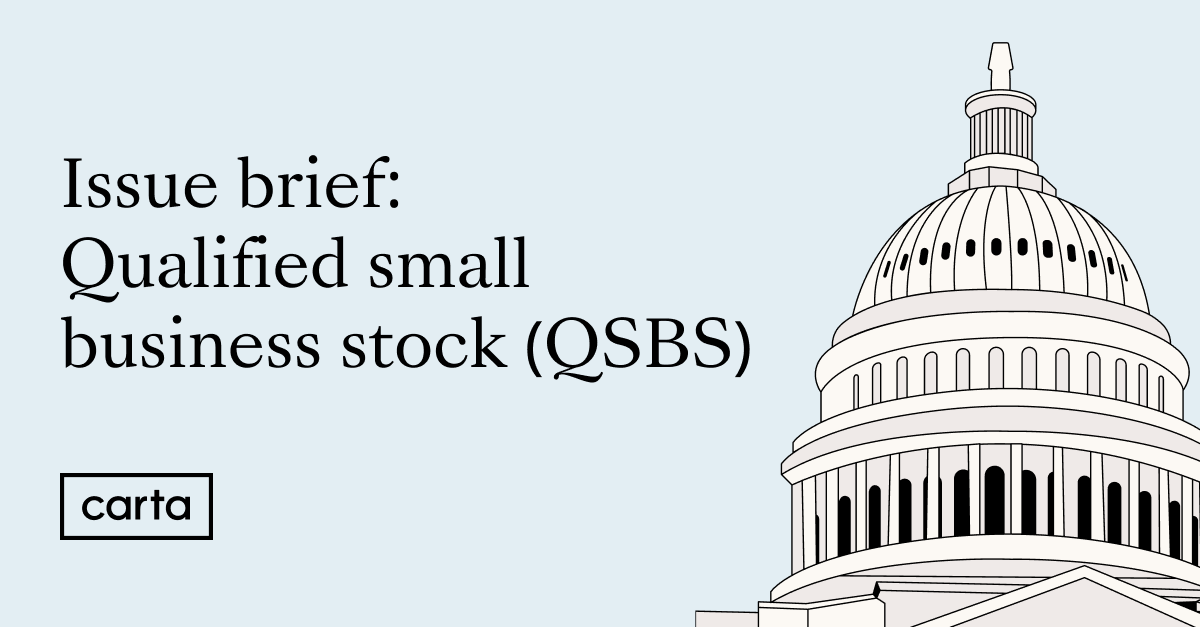Supporting investments in innovation and transformative technologies
Issue
The qualified small business stock (QSBS) exclusion is an amendment to Section 1202 of the U.S. tax code that limits capital gains taxes for the recipients of qualified small business stock.
The QSBS exclusion incentivizes investment in small businesses, including venture-backed startups, and has been instrumental to the growth of the venture capital–backed innovation economy in the U.S.
Background
Congress added the Section 1202 QSBS exclusion to the tax code in 1993 to spur job creation and long-term investment in startups and certain small businesses.
QSBS capital gains tax exemption
Initially, the QSBS exemption provided a 50% tax exclusion on capital gains of up to $10 million or 10x the taxpayer’s basis in the QSBS sold—whichever was greater. Since then, Congress has expanded the exemption (see chart below).
The exclusion only applies to qualified stock held for more than five years, and the business must be a domestic C corporation with less than $50 million in assets (with 80% of the assets of the corporations used in the “active conduct of 1 or more qualified trades or businesses”).
Expansion of the QSBS exclusion
In 2009 and 2010, Congress expanded the Section 1202 capital gains exclusion from 50% to 100%. In 2015, the increase to 100% tax exclusion was made permanent. Here’s what the exclusion looks like, based on when the qualifying stock was issued:
|
QSBS issuance date |
% of capital gains excluded |
|
August 11, 1993 – February 17, 2009 |
50% gain exclusion |
|
February 18, 2009 – September 27, 2010 |
75% gain exclusion |
|
September 28, 2010 – Present |
100% gain exclusion |
How QSBS supports innovation
The QSBS exclusion exempts most startup investors, employees, and founders from paying capital gains taxes when selling their equity, so long as they’ve met certain conditions, including the five-year holding commitment. This stimulates investment in high-risk, high-reward startups in several ways:
-
Incentivizing investment: By providing a tax benefit to underwrite the inherent risk in investing in startups, the QSBS exemption gives investors an added incentive to place bets on innovative companies building tomorrow’s transformative technologies.
-
Encouraging entrepreneurship and spurring job creation: Founders of small business take the biggest risk of all: They often choose to forego stable professional careers and receive equity in lieu of salary to build an innovative business. The QSBS exclusion gives entrepreneurs added incentive to take that risk. The small businesses they start are one of the nation’s engine’s primary engines of job creation; some go on to become companies that create entirely new industries or technologies.
-
Building employee ownership:By reducing capital gains taxes on employee stock awards, the QSBS exemption builds employee ownership in startups by increasing the potential upside of the stock, ultimately making it more valuable to the employee. Employee stock awards help founders compete for top talent and align employee performance with company objectives.
Policy outlook
Policymakers periodically propose rollbacks to the QSBS exclusion as a means of raising revenue, particularly as a means of offsetting new expenses. Most recently, House Democrats proposed a 50% reduction to the QSBS exclusion in the Build Back Better reconciliation package of 2021; however, the proposal failed to make it into the final bill passed later that year.
Carta supports maintaining the QSBS exclusion and leads coalition efforts to defend it from being rolled back or reduced.
Bottom line
-
The QSBS exclusion is vital to the innovation economy and to driving American competitiveness.
-
Congress should preserve the 100% QSBS exclusion.
Get involved
Stay up to date by subscribing to Carta’s Policy Weekly newsletter.
To learn more about how to get involved in Carta’s work to create public policy for tomorrow’s innovation economy, write us here.

